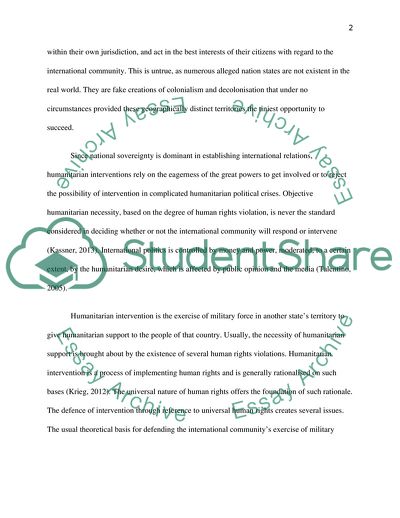Cite this document
(Humanitarian Intervention Exception and Respect for National Sovereignty Report Example | Topics and Well Written Essays - 2750 words, n.d.)
Humanitarian Intervention Exception and Respect for National Sovereignty Report Example | Topics and Well Written Essays - 2750 words. https://studentshare.org/sociology/1810225-humanitarian-intervention
Humanitarian Intervention Exception and Respect for National Sovereignty Report Example | Topics and Well Written Essays - 2750 words. https://studentshare.org/sociology/1810225-humanitarian-intervention
(Humanitarian Intervention Exception and Respect for National Sovereignty Report Example | Topics and Well Written Essays - 2750 Words)
Humanitarian Intervention Exception and Respect for National Sovereignty Report Example | Topics and Well Written Essays - 2750 Words. https://studentshare.org/sociology/1810225-humanitarian-intervention.
Humanitarian Intervention Exception and Respect for National Sovereignty Report Example | Topics and Well Written Essays - 2750 Words. https://studentshare.org/sociology/1810225-humanitarian-intervention.
“Humanitarian Intervention Exception and Respect for National Sovereignty Report Example | Topics and Well Written Essays - 2750 Words”. https://studentshare.org/sociology/1810225-humanitarian-intervention.


